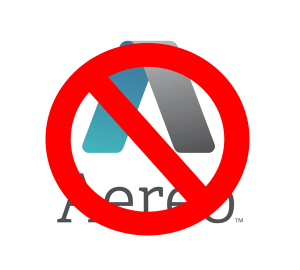 Today the US Supreme Court announced rulings on two big cases regarding technology. Both have huge implications regarding consumers use of technology and the threat to potential innovation when it comes to future technology. One case involved privacy rights while the other involved copyright.
Today the US Supreme Court announced rulings on two big cases regarding technology. Both have huge implications regarding consumers use of technology and the threat to potential innovation when it comes to future technology. One case involved privacy rights while the other involved copyright.
Aereo In Its Current Form Is Dead
I won’t go into too much detail on this case as I discussed the importance of it back when oral arguments were presented to the court. In essence, the court ruled 6 to 3 that Aereo violates the existing copyright law because it seems to be acting like a cable company. Note that I say seems to be. In technical terms, the lower courts found that what Aereo was doing in terms of renting subscribers an antennae and cloud storage to record local broadcasts for viewing did not violate those rules. The Supreme Court essentially took the problem to be that the transmission of those programs from the cloud to the subscriber did not constitute a private performance and therefore it was acting like a cable company company. Thus under the current copyright law, Aereo would have to obtain and pay for retransmission rights akin to what cable companies must do.
So, what does this mean for Aereo and consumers? Well, Aereo is effectively shut down now. In order for them to comply with the ruling, they would need to negotiate with the various broadcast networks for fees in order to be able to transmit those recordings from their cloud to subscribers. This means that in order to keep running, Aereo would have to pay huge fees just like the cable companies which would have to be passed on to subscribers if they can actually acquire those rights. It is doubtful that the networks and affiliates would be willing to actually give those rights. Regardless, you can be sure that the fees would end up being as high or higher than a service such as Hulu Plus which transmits many of the existing network programs just without local content.
Now cloud computing was also an issue brought up in the case, in this area at least the court ruling does not seem to impact cable companies or other providers such as Amazon or Apple. This is because they have already paid the fees or negotiated the rights in order to transmit programs or music.
Police Must Obtain Warrants for Wireless Phone Searches
The second case ruling by the Supreme Court today on technology actually involved two cases that were merged together into a single ruling. The ruling was unanimous that police need to obtain a warrant in order to do a search of a person’s wireless phone. This pertains to call records, text messages or just about anything that is contained or transmitted by the phone. In essence, the ruling imparted that people should have some expected level of privacy with regards to the information they carry around with them. Police have to follow the same rules with regards to search and seizure as stated by the Constitution and therefore need a warrant unless their are extenuating circumstances. This was pretty much a straight forward case which is why the ruling was supported by all nine judges of the Court. Now the question is how this ruling may extend to the fact that the NSA was essentially gathering this information in their domestic spying scandal.
